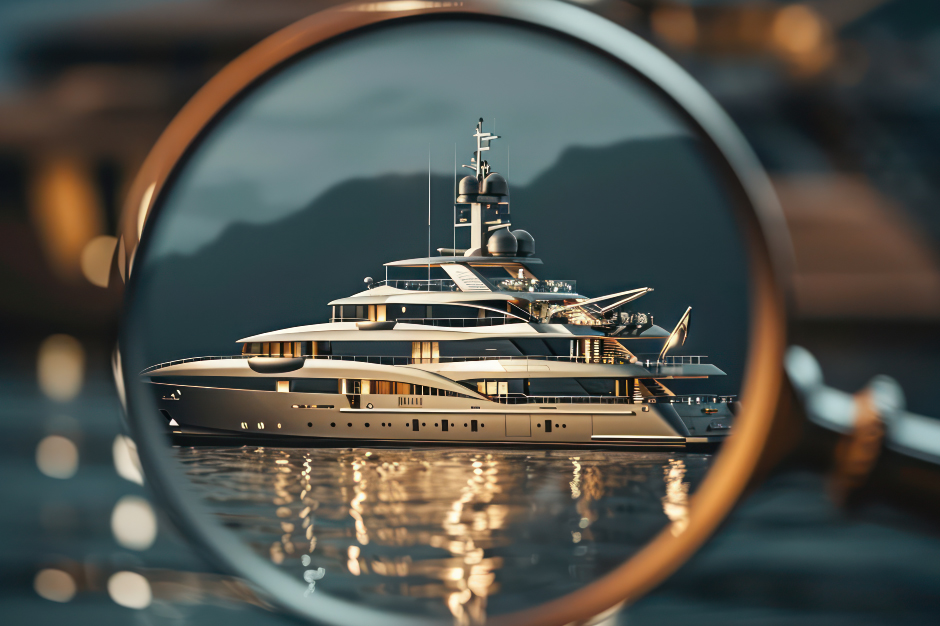
- Blog
-
by Admin
Purchasing a yacht is a large outlay of money, hence one of the most important considerations you will have to make is about the engine running your vessel. Your whole boating experience may be much influenced by the performance of the engine, fuel economy, and maintenance needs. Understanding the many kinds of yacht engines and their benefits will assist you in making a wise choice.
Inboard Engines
Found within the yacht’s hull, inboard engines provide a more peaceful and cosy ride. They have several benefits.
- Better Manoeuvrability: Particularly in confined areas, better manoeuvrability made possible by inboard engines lets one precisely regulate their movements.
- Increased stability: The weight of inboard engines is uniformly distributed within the hull, therefore enhancing stability and lowering the capsizing danger.
- More Powerful: Larger boats and those looking for more speeds would find inboard engines perfect as they can provide more horsepower.
- Lower maintenance: Usually simpler to access and repair than outboard engines & have lower maintenance.
Outboard Engines:
Mounted in the yacht’s stern, outboard engines provide convenience of maintenance and versatility. They provide a few benefits:
- Probability: Smaller boats and those with limited docking space may find outboard engines appropriate as they are easily removed from the yacht for transfer or storage.
- Lightweight: Generally speaking, outboard engines are lighter than inboard engines, therefore lowering the yacht’s total weight and increasing fuel economy.
- Shallow Water Capabilities: Outboards may be lifted and lowered to enable operating in shallow water environments.
- Easier Maintenance: For regular maintenance and repairs, outboard engines are more easily accessible.
Stern Drive engines
Stern drive engines mix the finest aspects of outboard and inboard engines. Though they are housed within the hull, their driving shaft runs through the stern and offers a comparable degree of manoeuvrability as outboard engines. Engine stern drives provide:
- Improved Fuel Efficiency: Because Stern drive engines have less weight and less drag than inboard engines, they are often more fuel-efficient.
- Quiet Operation: Compared to outboard engines, Stern drive engines provide a calmer ride.
- Easier Access: Maintenance for Stern drive engines is easier than that for inboard engines.
- Versatile Performance: Stern drive engines strike a nice mix of fuel economy, manoeuvrability, and power.
Hybrid and Electric Drives
The maritime sector is seeing increasing use of hybrid and electric engines as technology develops. These motors present:
- Reduced Emissions: A more ecologically responsible choice as hybrid and electric engines emit far less than conventional engines.
- Quiet Operation: Electric motors provide a practically quiet sailing experience.
- Lower Operating Costs: Reduced need for fuel causes electric engines to have lower running costs than conventional engines.
- Limited Range: Hybrid and electric engines are better suited for shorter journeys or particular uses as they now have a restricted range when compared to conventional engines.
Considerations of Factors Selecting an engine:
As you choose an engine for your yacht, take these things into account:
- Yacht Size and Weight: Larger yachts will need more strong engines, while smaller boats may be run on less strong choices.
- Planned Use: Think about your tastes in boating. Should you want to travel great miles, a fuel-efficient engine might be perfect. If you like fast performance, a strong engine is required.
- Budget: Price varies for engines; so, take your budget into account when deciding which one to choose.
- Maintenance Costs: These are factors in the continuous maintenance expenses connected to every engine type.
- Environmental Concerns: Should you be ecologically sensitive, hybrid or electric engines might be a good fit.
Your sailing experience will be much impacted by the choice of engine for your yacht. Your yacht’s size, intended usage, budget, environmental preferences, and engine type should all match one another. Carefully weighing the benefits and drawbacks of inboard, outboard, stern drive, hybrid, and electric engines can help you decide and have a happy and successful boating life.
